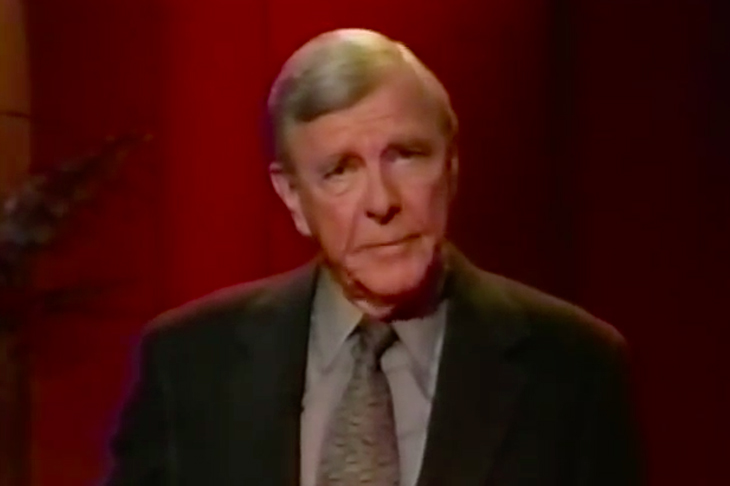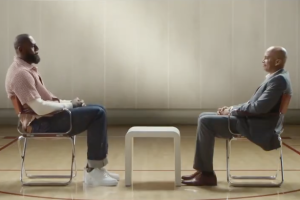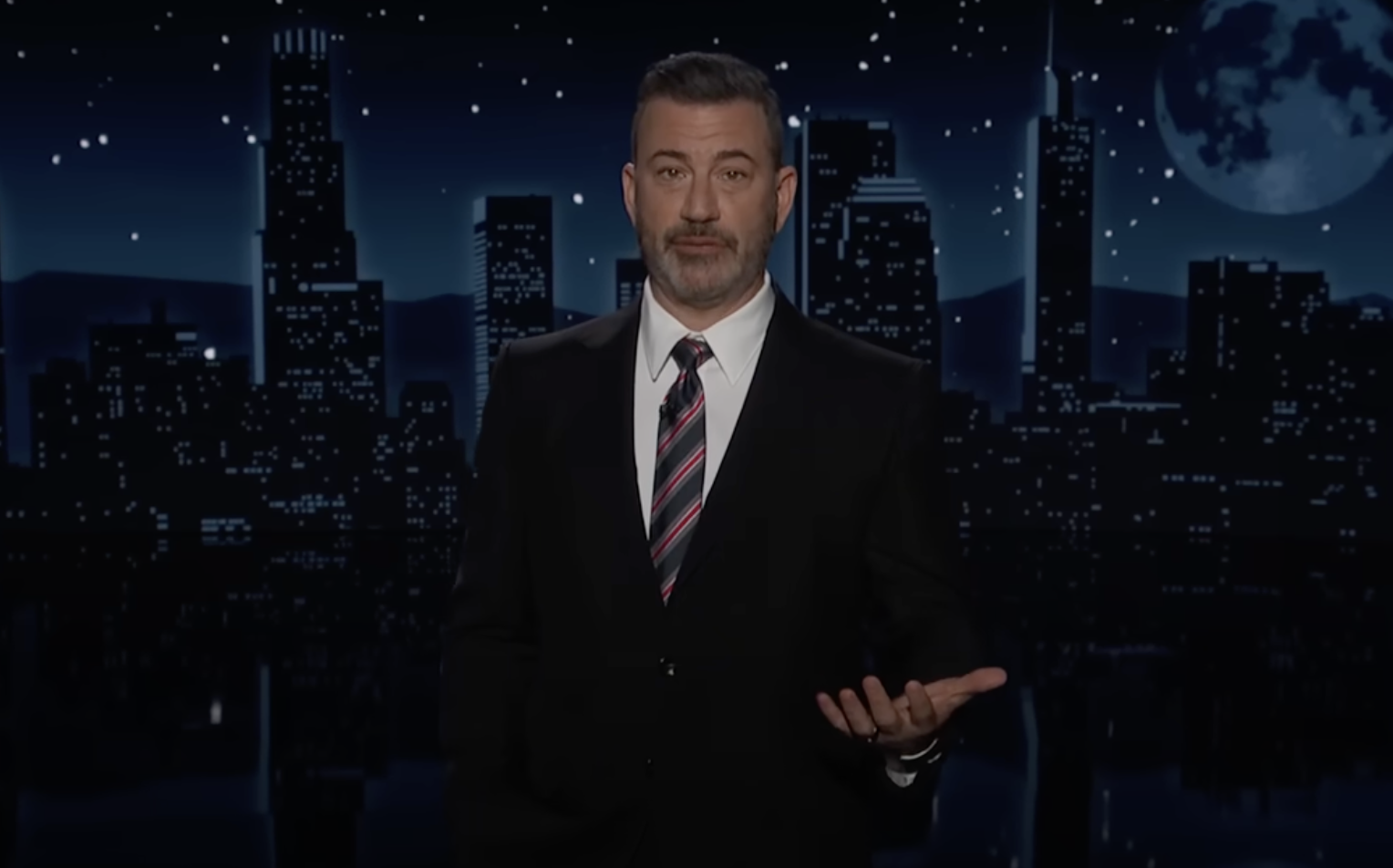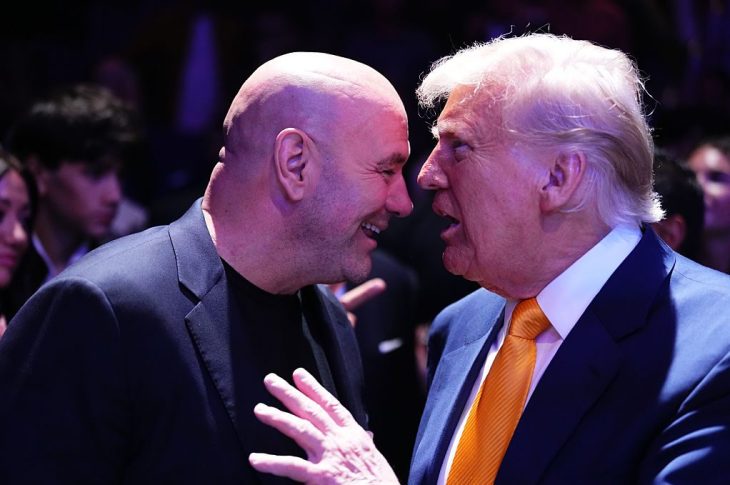The one program worth watching on PBS isn’t made by PBS. It’s Masterpiece on Sunday nights, and the masterpieces are British-made. PBS puts in a small amount funding before filming starts, then packages the variable results with a flourish of Baroque music and a spoken introduction. Since 2009, this address to the nation has been delivered by Laura Linney, affecting the gown and breathlessness of a Henry James ingénue about to attend a ball in old Vienna. Earlier speakers included Alastair Cooke, and Russell Baker, who died yesterday at 93.
Baker and Cooke were writers, not actors. Each explained American life after their own fashion, Cooke as the radio journalist who explained America to the baffled British in a weekly BBC broadcast, Baker as a New York Times columnist affecting bafflement at the task of explain America to itself. If all this sounds like a story from another time — call it Masterpiece Journalism — it’s not just because you’re old enough to remember life before the internet. It’s because American media has declined so fast since what Nathan Phillips, that master of political theater, calls ‘Vietnam times’.
Since the Sixties, journalists have considered themselves to be the modern clergy, ‘speaking truth to power’. The mythology of the Pentagon Papers and Watergate stands for the media’s claim to be the unelected legislators of the land, with a duty and calling higher than those of the elected legislators. This sense of mission has become so sacred that journalists are stunned when one of their number is subject to the law. This grandiose self-image encourages the afflatus of self-importance. And that self-importance has dissipated the virtues of journalistic prose — directness and honesty.
Directness and honesty mean more than ‘speaking truth to power’. These are low-risk activities if, like most American journalists, your truth happens to be the registered-Democrat truth that underpins the power of the left-leaning majority in the media, universities and governing class. Directness and honesty mean speaking truth about power. The operations of power, and the circulation of power in a commercial democracy, are not pretty. The absence of directness in American journalism reflects the cowardice and complicity of the journalists.
In the early 20th century, American novelists like Hemingway and Fitzgerald revolutionized written English by applying the methods of journalism to the baggy 19th-century novel: cut out as much as possible, and then cut and cut again. When space and time are tight, you must write in epigrams. The nature of an epigram requires condensation of thought and distance in perspective. Since the Sixties, American writers have lost the ability to say it plain and clear. They have lost all perspective on politics and the world outside America too. The two losses are related, and they are the result of the Sixties’ conversion of reportage into agit-prop.
Today, the New York Times would never run a Russell Baker epigram like ‘Americans like fat books and thin women’ — and not just because changes of taste have reduced one portion size and doubled the other. This statement is hilarious and true, but it implies that the intelligent mind should view social follies with amused disdain, as though Horace had wandered off his farm and into postwar Manhattan. This is not the ethos of our age. To the current editors of the Times, all intelligent minds think alike, and the purpose of engagement is to generate political outrage through the taking of imaginary offense. To avoid inadvertent offense, and to pursue the unending labor of building the heavenly city in which no one disagrees with anything, the Times’s prose becomes flabby, conditional, defensive, and passive-aggressive.
Nor would Laura Linney bite the hand that feeds us the fake high culture of Masterpiece as Baker did: ‘The charm of television entertainment is its ability to bridge the chasm between dinner and bedtime without mental distraction.’ This joke, like Baker’s Masterpiece gig, connects America’s language to its Old World sources. It updates an epigram from Maurice Bowra, probably datable to Oxford in the Twenties: ‘Buggery was invented to fill that awkward hour between evensong and cocktails.’
That kind of line also requires a bit of thought, and a willingness to laugh at oneself. A writer of Baker’s caliber had more in common with the age of Mencken and Bowra than that of Bill Maher and the Twitter threaders who think with their mouths open. Brevity is the soul of wit, and so is levity. Lose brevity, and you lose levity too. The pious cannot laugh at themselves, and they love to show their piety. When was the last time you read a report in the New York Times and thought, ‘Well, that got to the point quickly, and without trying to spin the facts’?
The American language was a masterpiece, an import remade for American life. But America’s language, once envied across the world for its speed and wit, is now the wrong kind of laughing stock. The adaptations of old novels we see on Masterpiece are falsifications, trading on a memory of cultural credit. The same goes for American literacy. That is not just a problem for the news business. For how can the future be American when the best educated cannot write a simple sentence, when politicians are slack-jawed before the autocue, and when most journalists see themselves not as reporters or analysts, but an aristocracy of propagandists?
Dominic Green is Life & Arts Editor of Spectator USA.

























